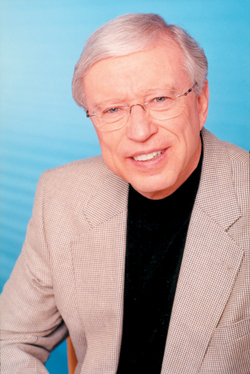
 |
|
|
Neil Clark Warren, PhD'67 Owner and CEO of online matchmaker eHarmony.com, Neil Clark Warren, PhD’67, is also the author of several marriage and relationship advice books. In 1961, after three years at Princeton Theological Seminary, Warren transferred to Chicago to study psychology. For 15 years he served on the faculty of California’s Fuller Theological Seminary—as director of research and later dean of its Graduate School of Psychology—before starting a private practice. Four years ago Warren, happily married for 45 years, retired to found eHarmony.com, which now has some 3 million members and boasts ten marriage announcements a day.
How does your research
play a role in eHarmony? Let me give you the two most important findings:
First, you cannot make any relationship work if one person is suffering
some significant emotional deficit. For instance, if you have one
person who’s addicted to anything, the relationship is going
to be terribly hobbled. Emotional health of both people is critical
to a marriage. Why is it hard for people
to find good matches on their own? Here’s the thing that makes it hard: You’re so individuated. You have so many sides to you. You’ve been pummeled by media, you’ve been pushed by your very stimulating education to take so many different attitudes, to assume so many value positions. So finding a person who agrees with you across all those dimensions—and you like his appearance and he likes yours, you have mutual chemistry, you like each others’ sense of humor, you have about the same amount of industriousness, the same amount of ambition, energy, all that—is a very complex challenge. For singles in America—there are about 98 million of them—the time has never been so good for the introduction of something like the Internet because it allows for two things: one, for you to get into a large pool. And two, it allows you to take advantage of everything we’ve learned about what makes a relationship really good over time. Does everyone have a soul mate? |
|
2007 The University of Chicago® Magazine | 401 North Michigan Ave. Suite 1000, Chicago, IL 60611
phone: 773/702-2163 | fax: 773/702-8836 | uchicago-magazine@uchicago.edu
phone: 773/702-2163 | fax: 773/702-8836 | uchicago-magazine@uchicago.edu

 Catch
up with...
Catch
up with...